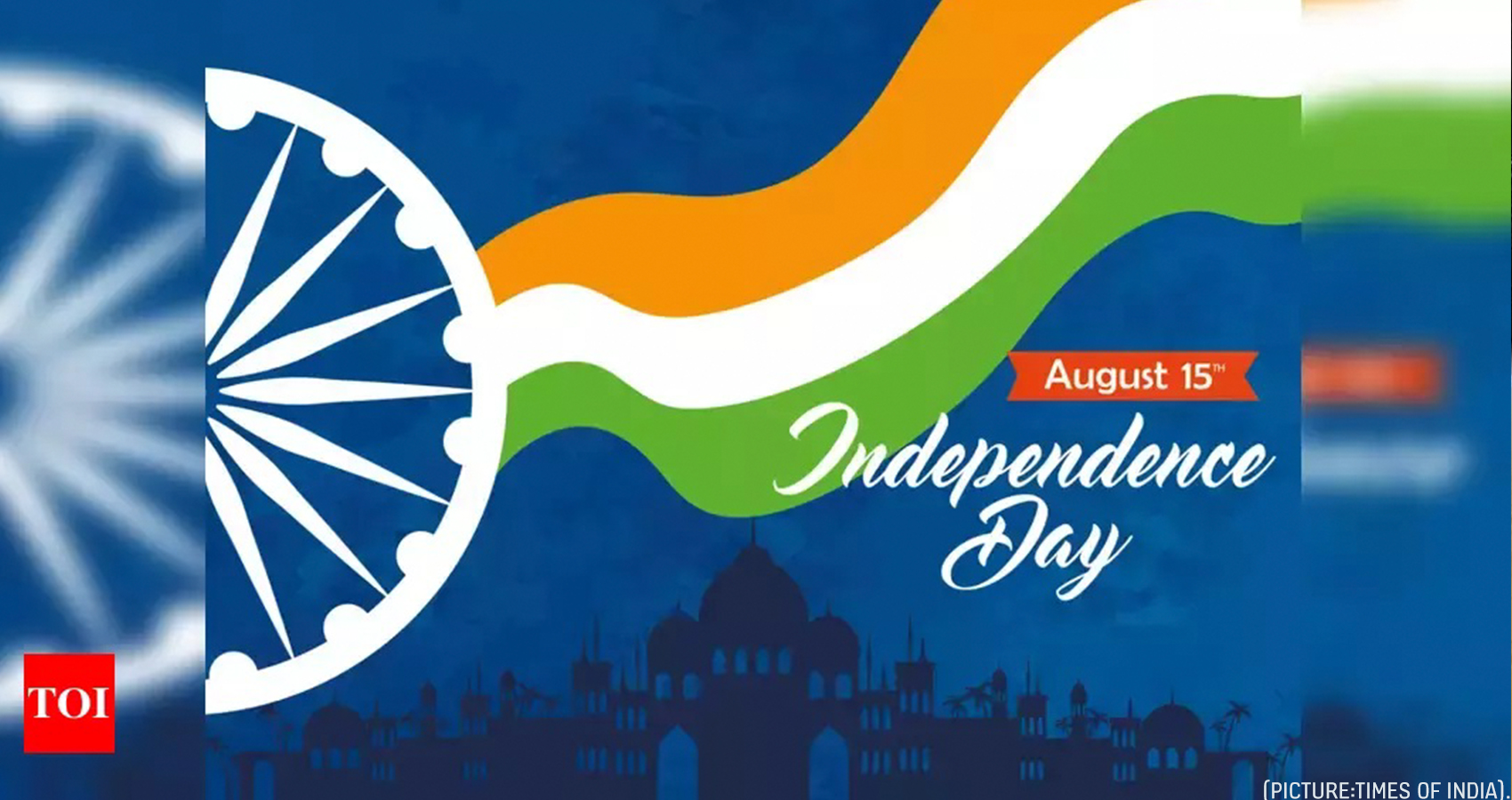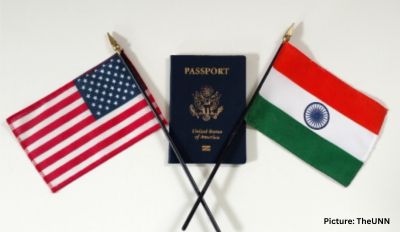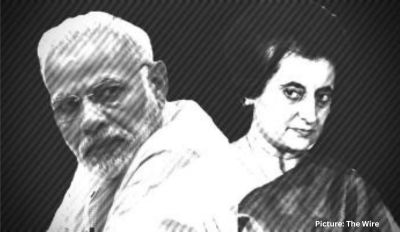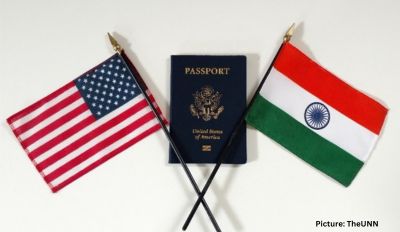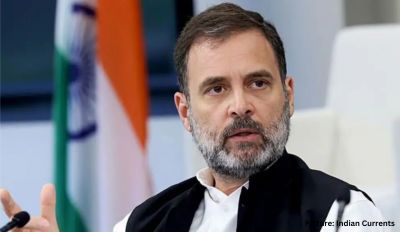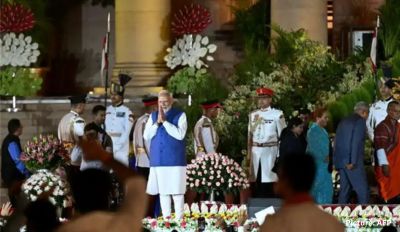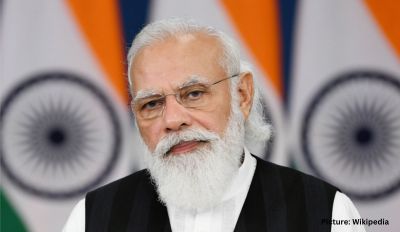What is happening to the soul of Indian democracy? ‘The basis for democracy is Liberty,’ said Aristotle. However, today, the Institutions that were built to safeguard that principle are under duress. Laws like UAPA were used in colonial times to suppress the independence movement by suspending ordinary jurisprudence. Under these laws, jail is the rule, and bail is an exception.
 “Many of the Desi civil rights organizations in this country would make loud protests, justifiably so, at the slightest discrimination or physical attack on an Indian but remain largely silent to any level of atrocities committed to vulnerable groups in India. Some of them act as if they are mouthpieces of the BJP regime, often defending actions that violate the fundamental values and principles of the democracy we all live in. As a minority, we demand equal opportunities and protection from the US government; however, we mostly remain reluctant to hold the Modi regime accountable to the same standard! It is quite a paradox!”
“Many of the Desi civil rights organizations in this country would make loud protests, justifiably so, at the slightest discrimination or physical attack on an Indian but remain largely silent to any level of atrocities committed to vulnerable groups in India. Some of them act as if they are mouthpieces of the BJP regime, often defending actions that violate the fundamental values and principles of the democracy we all live in. As a minority, we demand equal opportunities and protection from the US government; however, we mostly remain reluctant to hold the Modi regime accountable to the same standard! It is quite a paradox!”
As I was sitting at a corner table in a conference room at the Indian Consulate in New York surveying the folks who were busy preparing for a curtain-raiser function to celebrate India’s 74th anniversary of Independence with a Parade in Long Island, I wondered whether anyone in that group truly cared whether India is still holding on to that promise of freedom to all its citizens! To some, that question is lost amidst the excitement and pageantry of the upcoming celebration, and to many others, the retrogressive trajectory of India’s current path is the real reason for joy and celebration!
As the Diaspora is about to celebrate Independence Day of India once again, one of the questions that arises in minds across the globe is whose freedom is being celebrated on August 15, 2021?
Obviously, it was not the freedom of Father Stan Swamy, who died recently in detention on trumped-up charges of terrorism. He was a man who had devoted his life fighting for the rights of Dalits and Adivasis from the onslaught of corporate interests. And it is not the freedom of Sudha Bharadwaj, who has been languishing in jail now for over three years for defending the rights of the workers and seeking justice for extrajudicial killings by police officers. Of course, it is not the freedom of Asif Iqbal Tanha, Devangana Kalita, and Natasha Narwal who were exercising their constitutional rights to protest CAA. For that alone, they were incarcerated under the draconian UAPA law.In the case of Stan Swamy, the authorities didn ‘t even show basic civility in providing the man with a straw as this frail 84-year-old with Parkinson’s disease had difficulty drinking water from a cup. Upon contacting Covid-19 in prison, it took a court intervention for him to get released to a hospital of his choice, a delay that may have cost him his life. What happened to his right to life and liberty? Why was Stan Swamy denied the freedom to have a presumption of innocence?
 Last February 13, 2021, marks the civil rights lawyer and activist Sudha Bharadwaj’s 900 days in detention under the UAPA law.
Last February 13, 2021, marks the civil rights lawyer and activist Sudha Bharadwaj’s 900 days in detention under the UAPA law.
Last February 13, 2021, marks the civil rights lawyer and activist Sudha Bharadwaj’s 900 days in detention under the UAPA law. She took cases that many other attorneys refused to touch and represented workers wrongfully dismissed by companies, illegally evicted villagers from their land, and women who alleged sexual assault by security forces. Born in Boston to a distinguished economist, she went to IIT Kanpur to study Mathematics. Later, she moved to an iron mining ore town in Chhattisgarh and supported worker’s rights and safety while challenging land acquisition by major corporations and seeking justice for extrajudicial killings by police officers. Bharadwaj has denied the charges and said it was “totally concocted. Obviously, these arrests appear to be an affront to the rule of law and infringing on the citizen’s constitutional rights.
It has been said that a right without a remedy is no right at all. According to press reports, Sudha’s health situation continues to deteriorate in prison. The 59-year-old suffers from diabetes, hypertension, and heart disease, making her susceptible to Covid-19 in the cramped prison. Her bail plea is being rejected, and she has been denied books and Newspapers in jail. Michele Bachelet, the UNHCHR commissioner, has expressed concern over using ‘vaguely defined laws’ to silence activists and government critics. Doesn’t Sudha Bharadwaj deserve the freedom to have a hearing on her case without indefinite detention?
According to press reports, the most bizarre incident took place on March 19, 2021, in Jhansi, Uttar Pradesh, when four Nuns from the Delhi province of the Sacred Heart Society were arrested while on the way to Odisha from Delhi. The incident occurred while the train they were traveling stopped at 6.30 PM at Jhansi railway station. A group of religious extremists returning from a pilgrimage accused them of religious conversion and raised religious slogans. Subsequently, police arrived at the spot and arrested the Nuns without paying any heed to their side of the story. Around 150 religious radicals accompanied the women in procession to the police station. The terrified nuns were finally released at 11.30 PM after the intervention of some advocacy groups. Don’t these Nuns deserve the freedom of unimpeded travel without harassment anywhere in India?
Mohammed Munazir arrived in Delhi decades ago, escaping poverty in his native Bihar, where his landless father worked on other people’s farms for a pittance. In the beginning, like poor migrants, he lived in a tarped hovel on the fringes of sprawling Capital, working in a bookbinding shop. Finally, when the bookbinding shop folded, he started selling home-cooked biryani on a cart. Ultimately, he saved enough money to buy a home, a nondescript building in a narrow lane. “It was a nest I finally built for my wife and six children after a lifetime of struggle,” says Mr. Munazir. “It was the only thing I wanted in life; it was my dream come true.” It is that dream that ended in flames on a bright sunny Tuesday when the Capital’s worst religious riots in decades took place in 2020, leaving 53 people dead and hundreds of wounded languishing in understaffed medical facilities, and corpses were still being discovered in drainage ditches. Doesn’t Mr. Munazir have the freedom to dream of building his own nest?
Born to a Dalit family in the slums of Indora, an Ambedkarite hub in Nagpur, fifty-four-year-old Sudhir Dhawale is an activist, editor, and writer. Dhawale was arrested alongside five other activists and professors on June 6, 2018, due to their connection to Elgar Parishad, which was blamed for the violence at Bhima Koregaon, which took place on January 1, 2018. The 1818 Battle of Koregaon is an important milestone for Dalits. On January 1818, eight hundred troops of the East India company’s Bombay Presidency army with a large number of Mahars defeated a numerically superior force of the Peshwa Baji Rao II. A victory pillar was erected in Koregaon by the British, and in 1928 B. R. Ambedkar led the first commemoration ceremony there. Since then, on January 1, every year, Ambedkarites gather at Bhima Koregaon to celebrate the victory against the upper castes and highlight the historical oppression they have suffered under the caste system. However, to the powerful establishment, these daring Dalits needed to be taught a lesson! They may have finally succeeded in putting a damper on Edgar Parishad’s luster through defamation, linking it to the Maoist and anti-national movements. Doesn’t Sudhir Dhawale and other Dalits have a right to celebrate a historical event without interference from the upper castes?
It should also be noted that Milind Ekbote, President of Dharmaveer Sambhaji Maharaj Pratishthan, and Sambhaji Bhide, a man associated with RSS and Shiv Pratishthan, who was accused of causing the violence, never faced any serious action.
Mr. Rajesh Tikait from Uttar Pradesh, a farm leader and spokesperson of the Bharatiya Kisan Union, could be seen in a video distressed and wailing so loudly that his sobbing drowned out his words. Mr. Tikait said that the BJP was trying to “destroy” farmers and that he would not let it happen. He was indeed referring to how goons have infiltrated the January 26 protests by farmers to discredit their movement that has legitimate grievances against the farm laws passed by the Government in 2020. Harsimrat Kaur Badal, a former Union Minister and erstwhile ally of the BJP government, said, “This anti-farmer attitude of the NDA government is responsible for the plight of farmers who are not only been stonewalled for eight months but even their dead are not being recognized.” Why this farming community that is ‘annadaata’ to the country is being humiliated in this manner and called anti-nationals for exercising freedom to air their grievances?
The alleged snooping by the Indian Government using Israeli spyware Pegasus on opposition politicians, media personnel, and private citizens indicates that individual freedom and the right to privacy have become a thing of the past. Congress leader Rahul Gandhi, one of the victims of the phone tapping issue, asked, “we want to ask just one question. Has the Government of India bought Pegasus? Yes or No. Did the Government use Pegasus weapon against its own people?” The Indians in the snooping database include over 40 journalists, three major opposition figures, and one constitutional authority. What happened to the freedom of the opposition parties to hold the Government accountable and the freedom of the fourth estate to keep Government, legislators, and big business in check by keeping society or the public informed?
What is happening to the soul of Indian democracy? ‘The basis for democracy is Liberty,’ said Aristotle. However, today, the Institutions that were built to safeguard that principle are under duress. Laws like UAPA were used in colonial times to suppress the independence movement by suspending ordinary jurisprudence. Under these laws, jail is the rule, and bail is an exception. A polis project statement says ‘political prisoner’ is a category of criminal offense that sits most egregiously in any civilized society, especially in countries that call themselves liberal democracies. It is a thought crime: the crime of thinking, acting, speaking, probing, reporting, questioning, demanding rights, and, more importantly, exercising one’s citizenship. The assault on the fundamental rights has been consistent and ongoing at a global level, and rights-bearing citizens are transformed into consuming subjects of a surveillance state”.
Freedom of Conscience is fundamental to all other liberties. It is innate and God-given. It is guaranteed under the Indian Constitution. However, it is open season for those who freely exercise it. Academia has become another favorite target of the Modi Government. BJP and its ilk have always hated Institutions like JNU, where the free flow of ideas flourished, and lively debates on the pros and cons of contemporary issues were the order of the day. Today, the students and faculty in these revered institutions are intimidated, harassed, and called anti-national for failing to toe their Hindutva agenda line and are often charged with sedition. Modi Government has been openly hostile to civil society groups. It repeatedly denounces human rights and environmental activism as “anti-national” – a phrase that carries connotations of treason.
There is also quite an irony in the fact that today’s BJP leaders, who mostly come from the RSS ranks, are vocal on the issue of nationalism. The words and deeds of the founders of that organization, from Hedgewar to Veer Savarkar, clearly indicated that they were not only non-participants in the freedom struggle where hundreds of people were risking their lives daily but also collaborators who supported the British on critical occasions. The British acknowledged that RSS has “scrupulously kept itself within the law and refrained from taking part in the disturbances that broke out in August 1942.” Sardar Patel, writing on the assassination of Gandhiji by Nathuram Godse, said, “As regards to RSS and Hindu Mahasabha…our reports do confirm that as a result of the activities of these two bodies, particularly the former (RSS), an atmosphere was created in the country in which such ghastly tragedy became possible.”
“Religious freedom in India is taking a drastic turn downward, with national and various state governments tolerating widespread harassment and violence against religious minorities” said United States Commission for International Religious Freedom in its 2020 report. The BJP-led Government enacted the Citizenship Amendment Act (CAA), which potentially exposes millions of Muslims to detention, deportation, and statelessness when the Government completes its planned nationwide National Registry of Citizens”. USCIRF also recommended to the State Department that India be designated as a ‘Country of Particular Concern.’ India also slipped into 53rd position in the 2020 Democracy Index’s global ranking, dubbed a flawed democracy. The Economic Intelligence Unit (EIU) said that in India, democratic backsliding by the authorities and crackdown on civil liberties led to a further decline in their global rankings.
Christians who constitute around 3% of the population are also under severe stress with many of their places of worship under attack, increased re-conversion efforts by Hindu fundamentalist organizations, removal of Christmas Day and Easter Day from the National Calendar, and the cancellation of FCRA of thousands of Christian charities effectively putting them out of business, the Saffron brigade appears to be questioning the very Indian ness of every Christian in India. In addition, they are engaged in a scathing campaign to link Christianity in India, which has a two-thousand-year history, with the colonial legacy.
Agencies such as India’s Central Bureau of Investigation (CBI), the Enforcement Directorate of the Finance Ministry, the Tax authorities, and even local police forces are often accused of doing the Government’s bidding. The opposition has charged that their leaders have often been targeted for harassment which they consider a political vendetta for expressing their opinions critical of the Government.
In this week, we may witness widespread celebrations of India’s Independence that will be held in many cities across the U.S. However, one may hear very little regarding whether the hard-fought freedom won by the founding fathers of modern India is in danger of being extinguished! The Cultural and Religious organizations that provide forums for these events appear not to be concerned about the ever-diminishing freedom of India’s citizens or the weakening of its institutions. The current dispensation favors singing Vande Mataram in place of Jana Gana Mana as parts of that national song are replete with Hindu symbolism that is more gratifying, albeit not the communities in their entirety.
Indians have done well with the open electoral process in the US, having elected four of their own to the House of Representatives and another one as the Vice-President. Although most of them ascribe to policies considered far left of the center and often very strident on issues dealing with Civil Rights, Social Policies, or Immigration, they rarely criticize the Government of India for any similar wrongdoings such as violations of human rights or religious freedom. They seem reluctant even to raise these issues when meeting with the Prime Minister or other Embassy officials.
Many of the Desi civil rights organizations in this country would make loud protests, justifiably so, at the slightest discrimination or physical attack on an Indian but remain largely silent to any level of atrocities committed to vulnerable groups in India. Some of them act as if they are mouthpieces of the BJP regime, often defending actions that violate the fundamental values and principles of the democracy we all live in. As a minority, we demand equal opportunities and protection from the US government; however, we mostly remain reluctant to hold the Modi regime accountable to the same standard! It is quite a paradox!
The Bhartiya Janata Party’s victory in the Lok Sabha elections of 2014 and 2019 has ushered in an unprecedented attack on India’s democracy and injected new elements of intolerance and authoritarianism into the lives of people living in the country. The anti-democratic actions by the Government have sullied international reputation. Therefore, it is time to ask exactly whose freedom are we celebrating on this 74th anniversary? Is it the hard-fought freedom won under the long struggle by Mahatma Gandhi, Jawaharlal Nehru, Sardar Patel, and Maulana Azad from the British to the benefit of all its citizens in India or the diminishing freedom at the expense of the minorities and Dalits solely to the delight of the feudalists/upper castes elites? Nevertheless, from a vantage point, this celebration may be all about the genuine freedom we enjoy in this land of the free and home of the brave, which includes the right to hold a foreign national flag and walk in a parade under a religious banner of our choice!
(The author is a former Chief Technology Officer of the United Nations and Vice-Chairman of the Indian Overseas Congress, USA)

